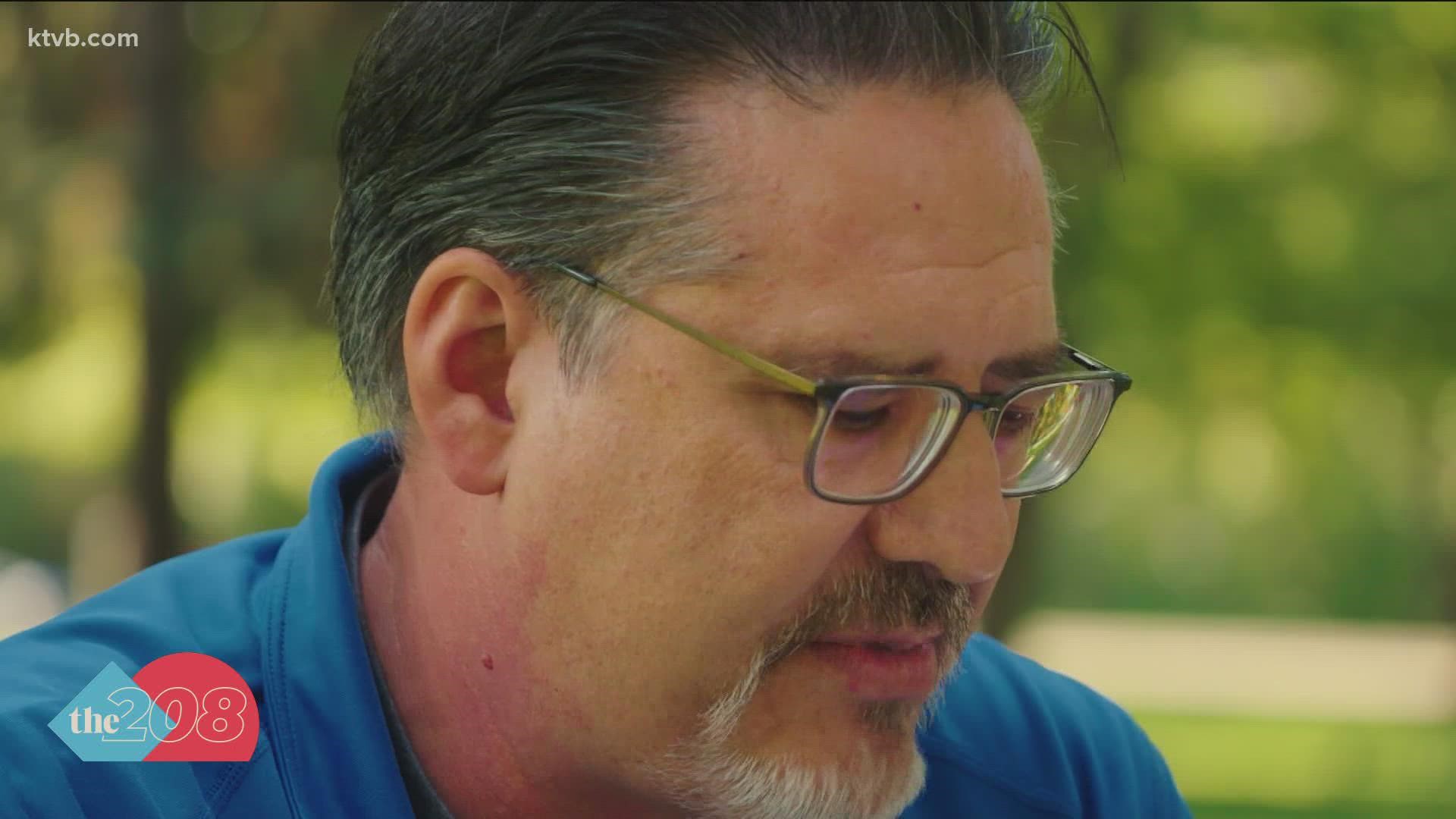CALDWELL, Idaho — In addition to healthcare workers, Idaho K-12 teachers are also feeling the strain of the COVID-19 pandemic. One teacher in Caldwell has been so overwhelmed by the strain of the pandemic that he ultimately decided to leave the profession.
On Sept. 14, Morgan Keena, a fourth-year middle school teacher in the Nampa School District, wrote an op-ed for Idaho Education News in which she said this year may be her last year of teaching.
"I truly love my job and until this year I have been excited to go to work every day," she wrote in the op-ed. "However, in the last few weeks, I have come to the realization that I may be leaving teaching after this year."
Keena detailed how she connects with 150 students every single day; she knows their home situations, hobbies, how they learn, and other things about all her students.
Despite what she wrote, Keena said she foresees Idaho's teacher shortage continuing due to low pay, college tuition costs and the treatment teachers receive from the school board and the community.
"Given the low pay, rising costs of college tuition, unpaid internships, and treatment that teachers are receiving from this community and board, I foresee that shortage continuing," Keena wrote. "We are only a few short weeks into the school year, and I can tell you the start to this school year is unlike any other. I am exhausted, hurt, and sad that this may be my last year. I can assure you that high-quality educators will only continue to show up for our kids if you show up and support the teachers of this district."
As Keena said this year may be her last year of teaching, a Caldwell middle school teacher decided this would be his final year teaching.
Mike Tetrault began teaching middle school in the Kuna School District in 1995 before moving to the Vallivue School District in 2015.
After 25 years as an educator, Tetrault made the difficult decision to leave the profession on Sept. 10, just three weeks into the school year.
Inside or outside of the classroom, Tetrault's goal has always been to engage his students and to make education rewarding for himself and his students. However, he said that feeling has been waning for a while.
"Well, it's still a rewarding profession but in the last half dozen years, kind of a death by a thousand cuts," he said.
The first cut, according to Tetrault, came in the early 2000s when the No Child Left Behind approach to teaching went into effect. He said his students lost their curiosity and only worried about their test grades. While that tact didn't ruin his teaching spirit, it did hurt it.
Funding has also been a challenge for Idaho teachers.
"Funding has been an issue for a long time and it hasn't really improved," Tetrault said. "We haven't been able to fund education at the level where I feel I can be successful in the classroom."
In addition to funding, the culture of education in the state of Idaho is less than ideal for teachers, according to Tetrault. During the last legislative session, one Idaho representative asked why the state would give money to classrooms "with teachers who don't want to be there".
"[It's] a gut punch to me who, my entire career, I've been there for kids and to improve the lives of kids," Tetrault said. "To hear somebody say that who is leading education in the state of Idaho is a slap in the face."
Although Tetrault has spent more than 20 years developing lesson plans, there still doesn't seem to be enough time. He has spent many weeks working 12-13 hour days and still feels he is falling behind.
"The level of work that is expected for us to provide the education our kids need is overwhelming and it's unsustainable," Tetrault said.
On top of all other struggles Idaho educators face, their salaries are not keeping up with the work demand. Starting salary for Idaho teachers is just over $40,000 a year.
"To give you an example, my kids' babysitter who is 22 just graduated. Four-year degree, nursing," Tetrault said. "She was hired at St. Lukes for $70,000 a year. I will stil not make that eight years from now when I'm eligible to retire from the profession. So that tells you how much we value educators in the state."
Through accusations of indoctrination and navigating education through a global pandemic, Tetrault saw a profession he no longer recognized. He was also informed he would be transferred to another district next year. It was then he made the heartbreaking decision to leave his profession.
"fI I continued to forge these realtionships with kids in the classroom and I left at say, semester break, it would be really hard," Tetrault said. "The fact the general public doesn't know what kind of crisis we are in right now and what level of crisis our educators are in, the level of stress and anxiety. As I've said before, it's everywhere and there are educators who don't think they can make it through the year and this toxic environment is not going away. It seems to be getting worse."
Join 'The 208' conversation:
- Text us at (208) 321-5614
- E-mail us at the208@ktvb.com
- Join our The 208 Facebook group: https://www.facebook.com/groups/the208KTVB/
- Follow us on Twitter: @the208KTVB or tweet #the208 and #SoIdaho
- Follow us on Instagram: @the208KTVB
- Bookmark our landing page: /the-208
- And we also turn each episode into a podcast on Podbean
- Still reading this list? We're on YouTube, too:

